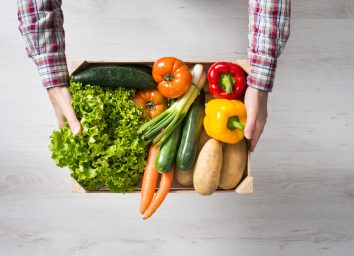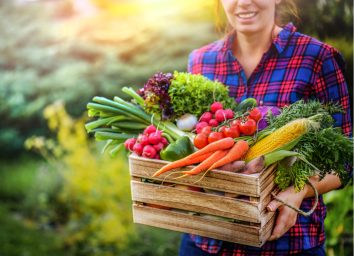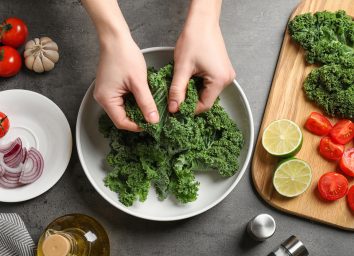6 Best Vegetables To Reduce Inflammation, Say Dietitians
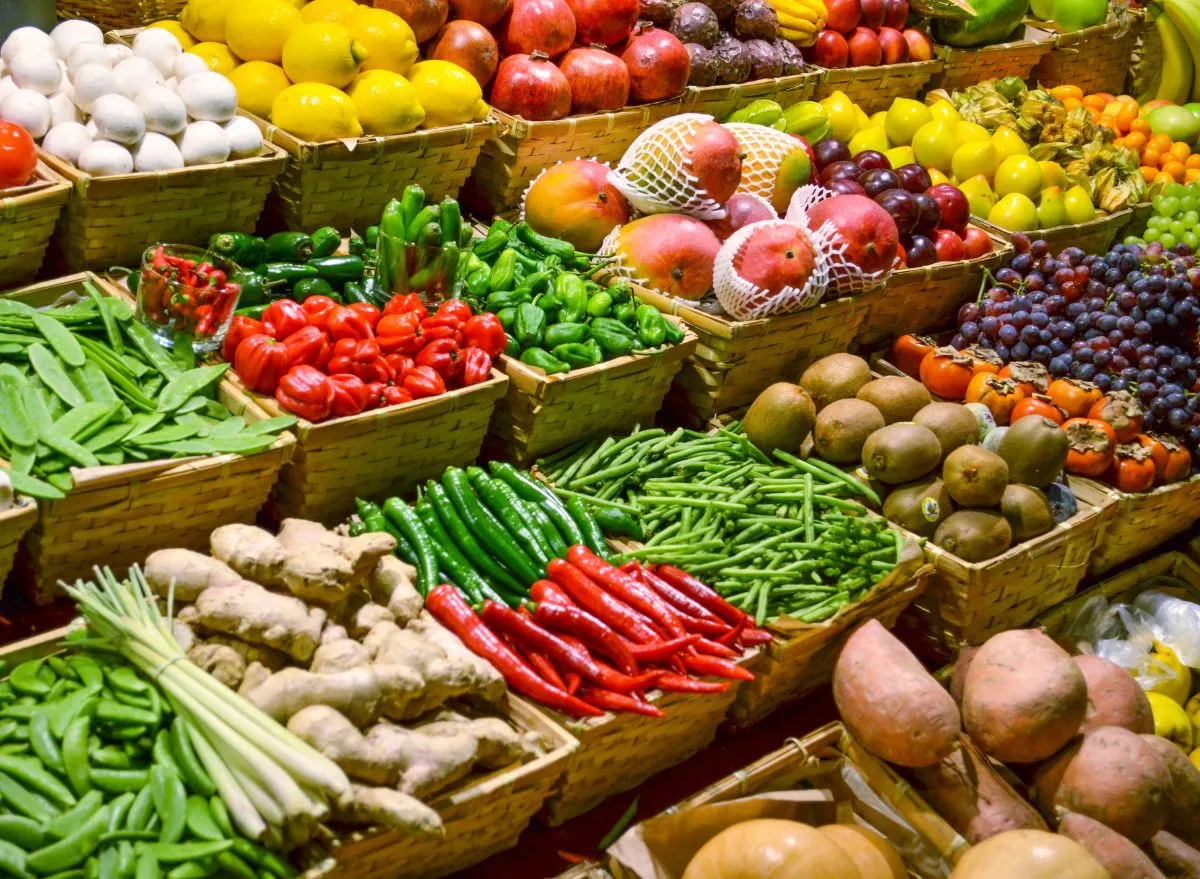
Looking to eat to fight inflammation? Vegetables are your friends.
“Vegetables contain antioxidants, which help to reduce inflammation in the body,” says Amy Gorin, MS, RDN, an inclusive plant-based dietitian in Stamford, CT, and owner of Plant Based with Amy.
“These antioxidants, in combination with the plethora of other nutrients that vegetables offer—help lower inflammation throughout the body,” says Gorin.
While all vegetables are fantastic sources of nutrients and antioxidants, we asked registered dietitians to share the produce that stands out from the pack. Read on for six incredible vegetables to load up on to reduce inflammation, and for more, don’t miss 5 Best Fruits To Reduce Inflammation, Says Dietitian.
Hot peppers
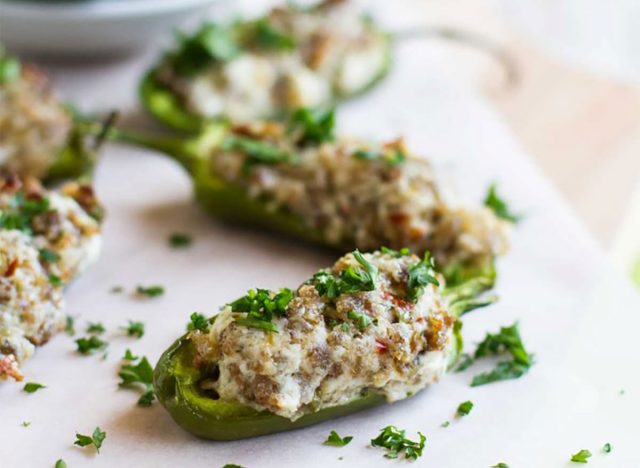
Bring on the jalapeños. “We’ve heard a lot about the benefits of eating hot peppers daily,” says Gorin. “Doing so may help decrease the risk of death from cancer, heart disease, and respiratory disease because of their anti-inflammatory properties.”
Dark leafy greens
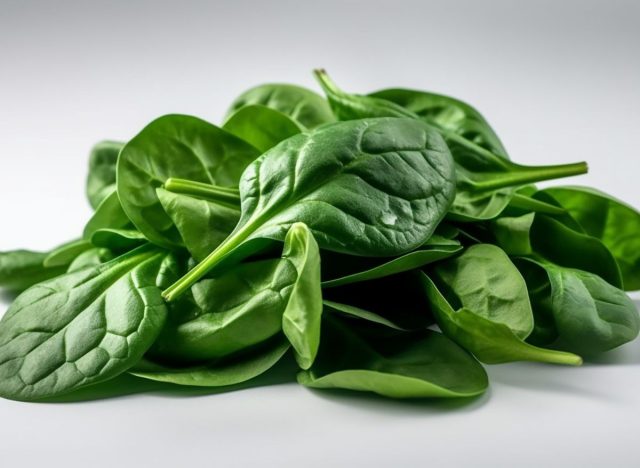
To reduce inflammation, grab those greens. “Kale, spinach, and other leafy greens are rich in beta-carotene—an antioxidant known for its powerful anti-inflammatory properties,” says Kim Yawitz, RD, a registered dietitian and gym owner in St. Louis, Mo. “Studies have linked higher amounts of beta-carotene in the blood with lower levels of a marker of inflammation called C-reactive protein (CRP). In one small study, adults who followed a diet including lots of leafy greens were able to reduce their CRP levels by 400 percent in six months, on average.”
Broccoli
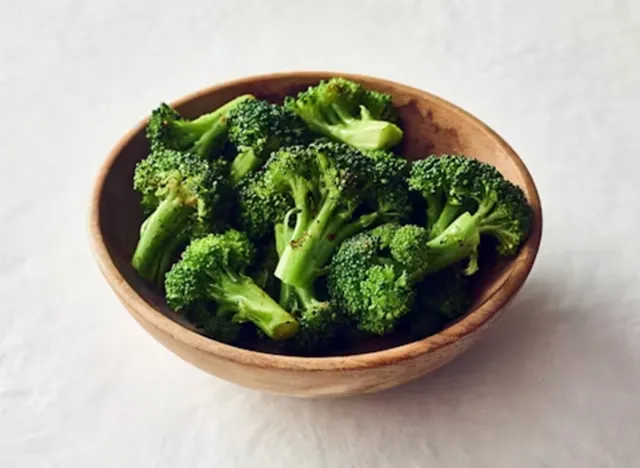
“Cruciferous vegetables such as broccoli contain sulforaphane. This has anti-inflammatory benefits that help decrease inflammation in the body and potentially help fight disease,” says Gorin, noting that she loves to enjoy broccoli in a broccoli slaw salad.
“In one study, male smokers who ate 250 grams of broccoli daily (about 2.5 cups) reduced their levels of CRP by 48 percent in just ten days,” adds Yawitz. “Raw broccoli has about 10 times more sulforaphane compared to cooked broccoli. I love using finely chopped broccoli in place of cabbage in a slaw or dipping it in hummus or guacamole for a snack.”
Onions
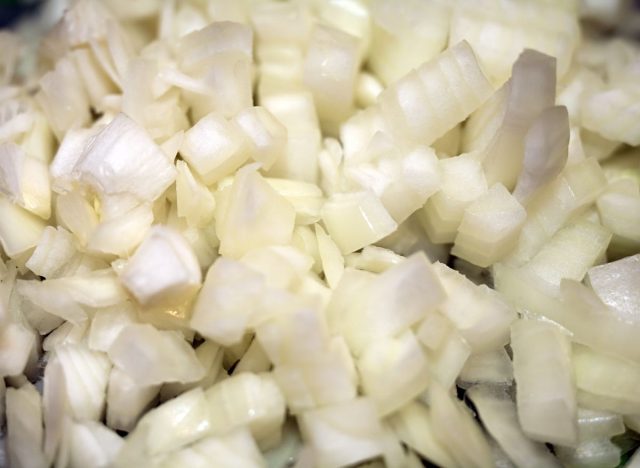
“You might not think of most onions as colorful, but they’re actually one of the best sources of a plant pigment called quercetin. Quercetin is an antioxidant that decreases the production and release of various inflammatory enzymes and molecules in the body,” says Yawitz. “Studies suggest that eating more onions can help fend off inflammation and—in the process—reduce the risk of obesity, high blood pressure, type 2 diabetes, and dyslipidemia.” Pretty amazing, huh?
One more note: “Quercetin is the most concentrated near the bulb of the onion and in the outermost rings, so grabbing those parts of the onion could give you a bit of an anti-inflammatory boost,” says Yawitz.
Red bell peppers
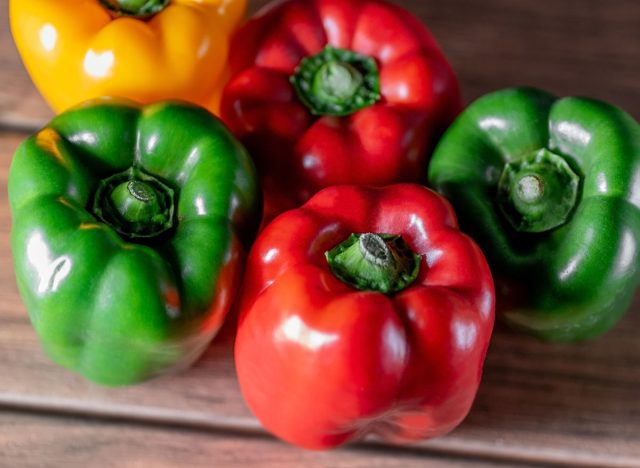
Yawitz calls red bell peppers “a triple threat” for combating inflammation. “In addition to being a great source of beta-carotene and quercetin, they also contain a pigment called luteolin that can help block cytokine production,” says Yawitz. “Studies suggest that luteolin could help protect against several inflammatory conditions, including heart disease, diabetes, and cancer. Adding red pepper to your omelets, salads, and stir-fries is a great way to get more luteolin in the diet.”
Sea moss
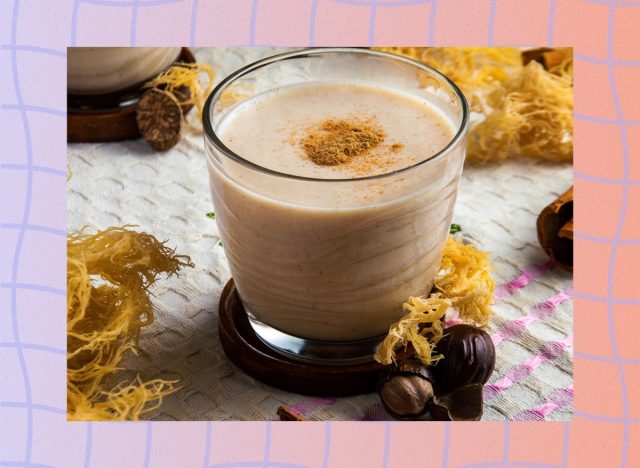
This edible sea plant is well worth incorporating into your diet. “We’re hearing more and more about the benefits of sea moss. It contains omega-3 fatty acids, which provide anti-inflammatory benefits,” says Gorin. “As well, all vegetables—including sea vegetables!—provide antioxidants that help to counteract inflammation in the body.”

